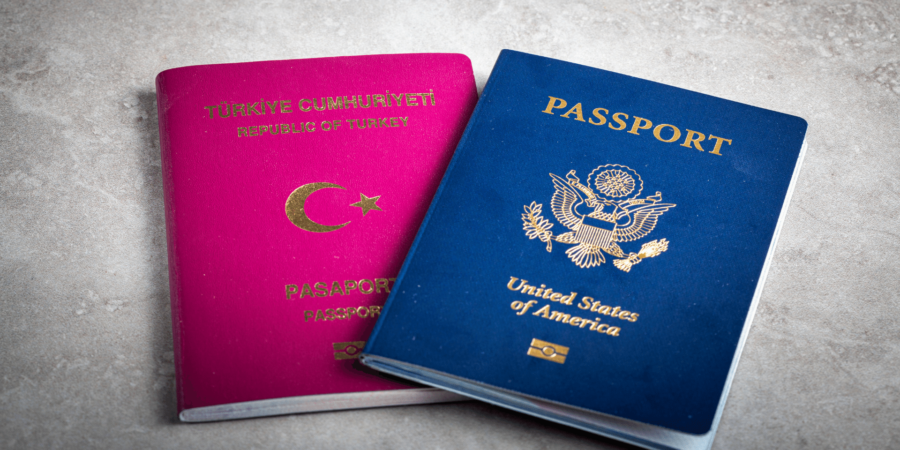What is Dual Citizenship and How to Get It?
What is dual citizenship?
Dual citizenship, which is also referred to as dual nationality, is a concept used to mean that an individual is a national of two countries simultaneously, either by choice or circumstances. A dual citizen is recognized by both governments and enjoys the rights and responsibilities enjoys all citizen rights and responsibilities.
Not all countries allow dual citizenship, and those that do, have varying rules on how one can get it. Some will require that one relinquishes the citizenship of their country of origin or automatically loses their citizenship when they become citizens in another. So, before pursuing dual citizenship, it is important to understand laws on dual citizenship in your country of origin.

How to Get Dual Citizenship
The dual citizenship request can be based on work, residence, or marital grounds. Here are some ways of getting dual citizenship.
- Neutralization:
Neutralization is a legal process through which lawful permanent residents are granted U.S citizenship. The requirements for citizenship by neutralization are defined in the INA (Immigration and Nationality Act) established by Congress.
How to apply dual citizenship and become a citizen by neutralization:
- Be at least 18 years old or of the minimum required age.
- Be of good moral standing.
- Be proficient in basic English, both spoken and written.
- Demonstrate allegiance to the U.S and knowledge of the U.S government and history.
- Be living in the United States physically and continuously for at least three years as a green card holder (demonstrate continuous presence)
- Establish continuous residency in the USCIS district or the state where they wish to apply.
- If male, register for military service and be ready to perform civil services as and when required.
These are the requirements needed to kick start the application process:
- 2 passport-size photographs.
- Copy of the other country’s Citizenship certificate.
- Copy of the birth certificate.
- Copy of passport.
- Copy of identity card.
- A copy of the marriage certificate (for spouses)
- A printed online application form 3 (Print the form after completing your application)
- Copy of the other country’s passport
- Acquisition/ Birthright
A child below 18 can get dual citizenship when born to parents in a foreign country or after birth, regardless of which country they come from. Even where the parents are from another country (except for diplomats’ children), children born in the United States get automatic citizenship at birth.
To get a child’s dual citizenship granted through acquisition, the adoptive parent needs to produce the following documents;
- Duly completed application Form attested to by a Commissioner for Oaths.
- Copy of resident’s country passport and/or identity document.
- Copy of the other country’s naturalization certificate.
- Have 2 Passport size photographs for both parent and child.
- Copy of the child’s birth certificate.
- Parent’s copy of Passport /Driver’s license
- Copy of the other country’s passport for the child.

- Through military service
Persons who have served or are serving in the U.S. disciplined forces and are interested in becoming U.S. citizens can apply for citizenship under the Immigration and Nationality Act (INA). This act will automatically and effortlessly grant you U.S. citizenship besides your country of birth through naturalization. Many youths from alternative nationalities have opted to go through this path as citizenship through military naturalization is quicker and less hectic. It is possible to do it online without having to present yourself physically.
To apply online, you will need;
- To be 18 years old or older at the time of application.
- To have served honorably at any given time in the U.S. disciplined forces for a period or short periods totaling at least one year or more.
- To submit a copy of completed Form N-426(native to U.S. only), request for a Certification of the Military, armed forces, or Naval Service at the time of submitting your application.
- To demonstrate that you were never discontinued on malicious grounds except under honorable conditions, in line with the military constitution if separated from service.
- To be a law-abiding permanent resident during the time of your naturalization interview and before.
- To meet the specific residence requirements stipulated by the country.
- To demonstrate perfect ability to read, speak and write English. However, you can be exempted if you are qualified for a waiver or exception;
- To demonstrate significant knowledge of the history and government of the U.S. unless you have allowed exemptions for that.
- To demonstrate good moral and societal character for at least five years before filing your N-400 through the day you apply for the naturalization. A criminal history will automatically disqualify your application.
- To demonstrate an infinite attachment to the principles of the U.S. Constitution and regulated laws, be well aware of the good order and happiness of the United States during all relevant periods under the law. This also qualifies for a waiver exemption.
The application process is done through special legal processes involving the commissioner of oaths where the application is made. Some countries allow online application for dual citizenship, while others only require physical presence during the application procedure.
On residence grounds, the government may grant dual citizenship if the foreign national has been a permanent resident for more than three years and has been living in a marital union with the nationality. Citizen-spouse during that time and meets other eligibility requirements.

Advantages and Disadvantages of Dual Citizenship
Advantages
- Two Passports
Dual citizenship automatically guarantees you the authority to carry and own two passports. You are at liberty to visit and stay in the two countries for as long as you would wish without colliding with the law.
You have guaranteed universal mobility as it gives you the freedom to move between the two countries without going through complex customs. For instance, you can go on vacations in one country and treatment and health consultations in another, depending on the quality of services. The two passports have equal powers n privileges, and none is ‘more potent than the other. It does not matter which one you acquired first.
- Ownership of property
You can own property in two countries with dual citizenship without paying extra resident rates, which is a plus for investors or an heir hoping to keep their family property intact if they shift countries. Some countries have land, and property ownership restricted to their citizens only. With dual citizenship, property terms and land rates are applied without any bias as long your passport is valid. Shipping of assets and products between the two countries is also free and quicker if you have dual citizenship.
- Benefits and Privileges
Dual citizens get to enjoy benefits and privileges offered to citizens of each country. They can vote, run for office, access social services, and more in both countries. They also get to work without the need for a visa or work permit and attend school at the standard citizen rates.
Disadvantages
- Double Taxation
You are taxed in each country independently, and you cannot evade that. That means you have to file your taxes twice whether you live in that country or not. Failure to comply with genuine tax filing for a long time might lead to seizure of assets by the government, suspense, or even loss of one of the citizens. This takes a toll on finances, especially for the middle class in society. However, it’s a small price you have to pay to enjoy all the other benefits of dual citizenship.
- Dual Obligation
Each country’s laws and regulations bind a dual citizen; there is no escaping it. For example, if citizenship requires military service, you must serve without jeopardizing your citizenship status. If you fail to fulfill the mandatory service, you risk losing citizenship.

Benefits and Privileges of Dual Citizenship
Double access to social services
With dual citizenship, you can access any services you need, such as voting during elections, participating in national events, etc. This is applicable to equal rights in both countries. You are associated with two countries simultaneously during global events such as athletics, which is quite gracious.
Ease of travel from one country to the other
With two passports, mobility becomes more effortless and improved between the two countries. You can also export and import commodities between the two countries without being taxed extra. You can wake up and decide to visit the other country abruptly without requiring a visa. All you need is your ticket, and voila!
Power to run an office in both countries
Depending on the economic status of your preferred country, you are at liberty to choose which country you want to run your office operations. You are also equally eligible to vie for any political seat in either of the nations. However, some countries will restrict you from running for a political seat with dual citizenship.
Double Access to governmental programs
You have a double chance on government programs such as scholarships. You can settle on the side that the systems are more efficient and improved. This gives you a ticket for world-class experiences as you will always lean on the better side.
E.U. membership
If you obtain dual citizenship in one of the European countries, you will automatically become an E.U. member with all E.U. citizenship rights. The said rights include visa-free travel in all the areas of the Schengen zone and the right to work, study, and live in any of the E.U. countries. You also benefit from national healthcare services and top-notch educational opportunities in these countries. You can also benefit from favorable tax treatments and tax evasion.
Improved family ties
In instances where one has families in both countries, such as in-laws, you are at liberty to visit them any time you wish without much hustle, which improves family relations and creates a great sense of belonging.

Does the United States allow dual citizenship?
We could say yes, the United States allows dual citizenship as several people own two passports and are considered dual citizens. However, there is still some confusion as the U.S. law is not very clear on this matter.
The Constitution of the United States doesn’t regulate dual citizenship, but American citizens are, of course, more than ever interested in getting a second passport. It is more of second citizenship for the citizens as there are no application forms that one has to fill out or any other documents that attest to the same.
In the United States, When the Constitution doesn’t address something clearly, it’s left to Congress to make laws and decide on the matter. If no laws settle it, the citizens check what the Supreme Court has said about it. The Supreme Court has ruled severally that American citizens can have dual nationality despite not being documented. However, it is most often termed second citizenship and not dual citizenship. Second citizenship is a guaranteed way to acquire two passports as well.




